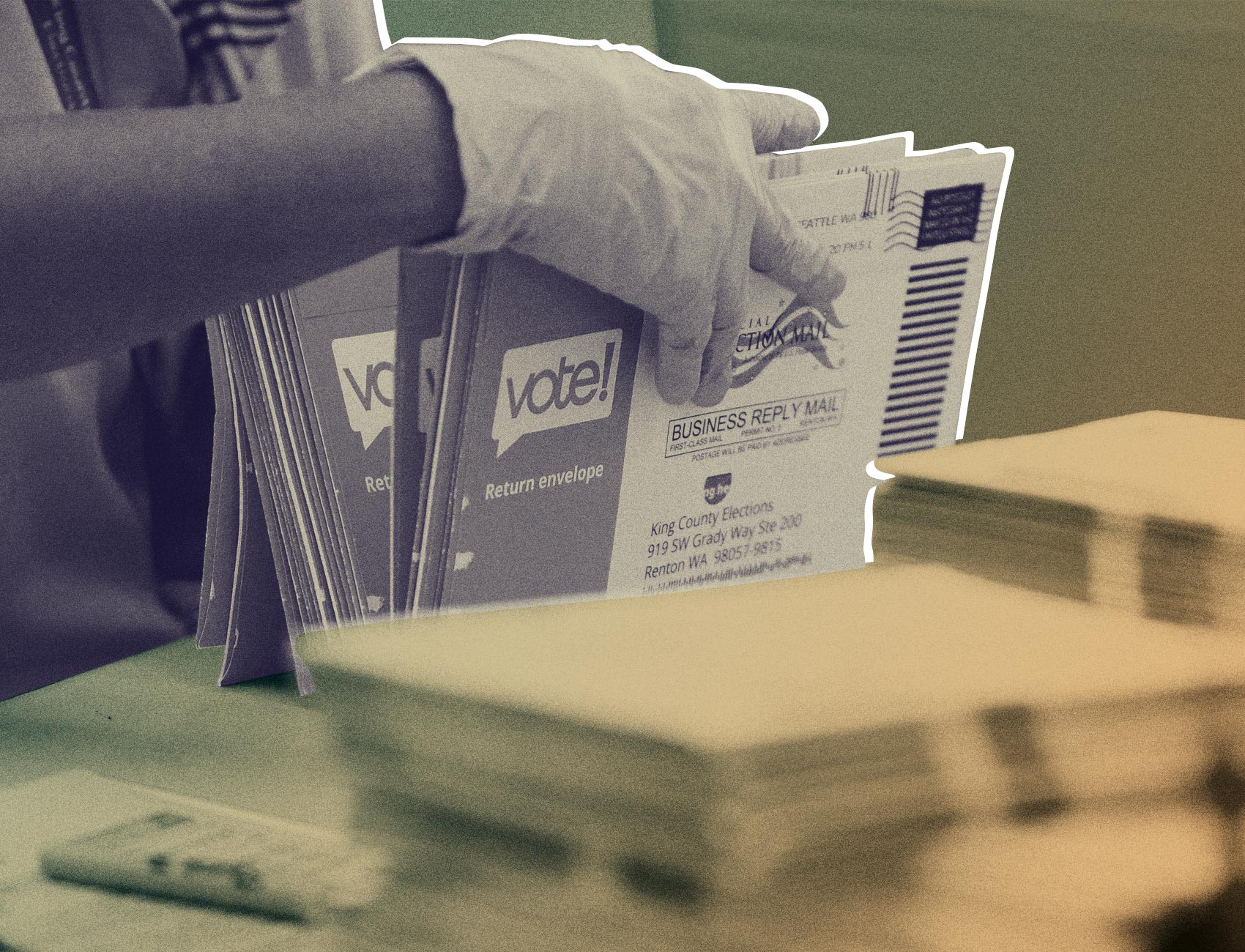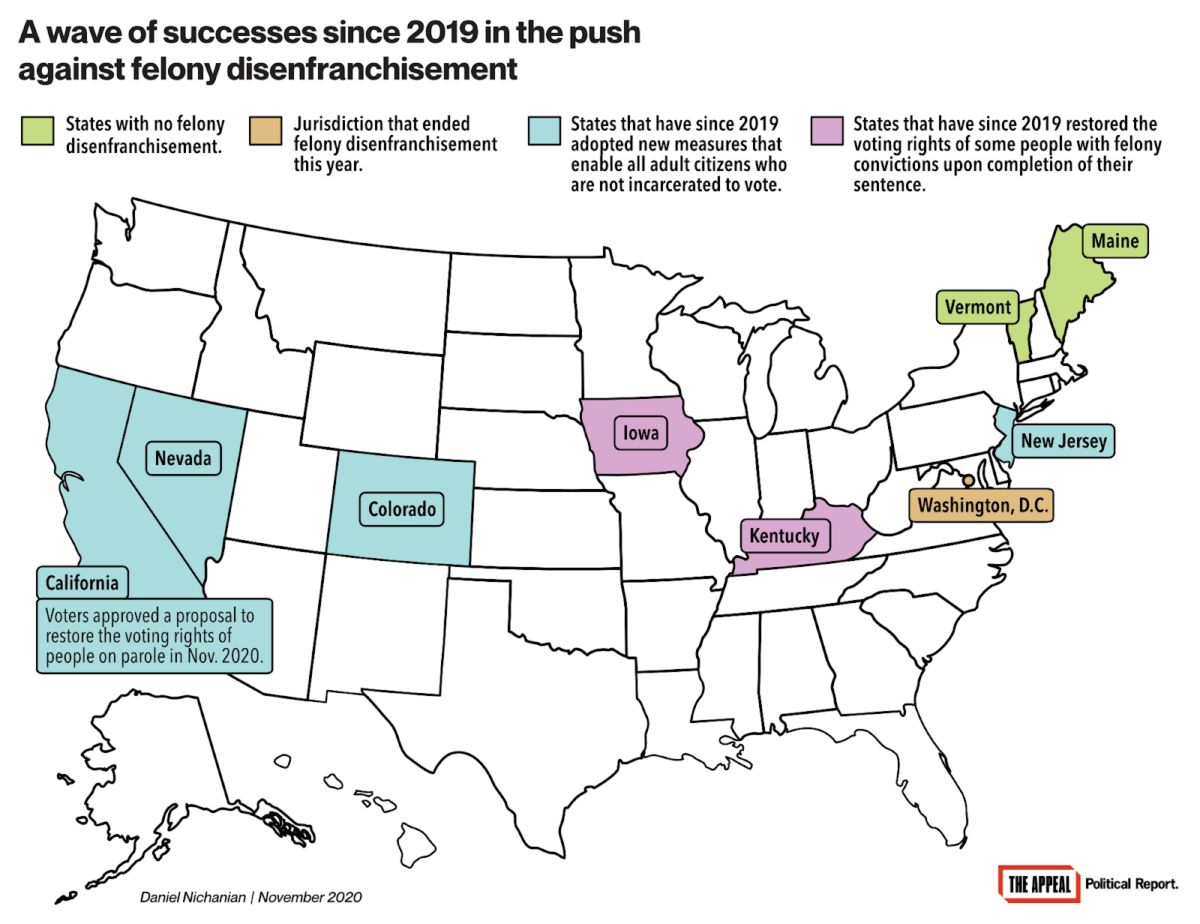Political Report
Californians Approve an Initiative to Expand Voting Rights
Proposition 17 will enable people who are currently on parole to vote. It’s the latest in a wave of nationwide reforms that have narrowed or ended felony disenfranchisement.

Proposition 17 will enable people who are currently on parole to vote. It’s the latest in a wave of nationwide reforms that have narrowed or ended felony disenfranchisement.
Across the country, hundreds of thousands of citizens were newly able to vote thanks to a wave of recent state reforms that have expanded the voting rights of people with felony convictions.
California just added to this wave. Voters have overwhelmingly approved Proposition 17, a ballot initiative that restores the right to vote to anyone who is not presently incarcerated, according to the Los Angeles Times. As of publication, the “yes” is leading 60 percent to 40 percent.
“This is a victory for democracy and justice,” Taina Vargas-Edmond, executive chair of the Yes On Prop 17 campaign and co-founder and executive director of Initiate Justice, an organization that has championed ending felony disenfranchisement, told The Appeal: Political Report. “For far too long, Black and brown Californians have been excluded from our democracy.”
California becomes the 19th state, alongside Washington D.C., to enfranchise all adult citizens who are not in prison. Colorado, Nevada, and New Jersey all adopted similar reforms in 2019.
“Given that California describes itself as a progressive state, it should have made this change a long time ago,” Nicole Porter, director of advocacy at the Sentencing Project, told The Appeal in October.
The initiative restores voting rights to more than 50,000 people with felony convictions who are currently on parole. Roughly twice as many people will remain disenfranchised because they are in prison, a rule that Proposition 17 will not change.
A disproportionate share of disenfranchised Californians are Black, according to the Sentencing Project, the product of a legal system in which people of color are more likely to be arrested and convicted of felonies. Like many other states, California adopted its disenfranchisement policy as part of a new constitution during the Jim Crow period after the Civil War, when white lawmakers sought to keep Black people from gaining political power.
California’s effort to expand the right to vote, like those elsewhere in the country, has been led by directly impacted people, including activists with Initiate Justice.
John Windham, a formerly incarcerated advocate with Initiate Justice who is now serving a period of parole of seven years to life, was not allowed to vote this year. “I feel as though I’ve committed treason against my country, and they’re stripping me of my citizenship but allowing me to stay, instead of kicking me out,” he told The Appeal in October.
Even with the measure’s passage, California is far from the most expansive state when it comes to voting rights.
Two states, Maine and Vermont, never revoke voting rights and allow people to cast ballots while in prison. Washington, D.C. adopted the same practice in a historic step in July, and implemented it for the first time this fall. Advocates in other states, including in Hawaii, Massachusetts, and Virginia, have also vowed to press their states to abolish felony disenfranchisement.

Initiate Justice advocates for enabling citizens voting from prison, and it plans to continue pressing California to end felony disenfranchisement.
“I’ll forever remember the phone call I received in 2017 from Rahsaan Thomas in San Quentin State Prison who made it clear to me then, and has since made it clear to all Californians, that the first step to empowering people impacted by mass incarceration is to restore their right to vote,” said Vargas-Edmond, referring to an Initiate Justice organizer who is incarcerated in San Quentin.
“50,000 Californians now have their rightful say in their democracy, but this is only the first step,” she added. “Moving forward, we must work to ensure that voting rights are restored to people currently incarcerated in state and federal prisons as well,” she added.
